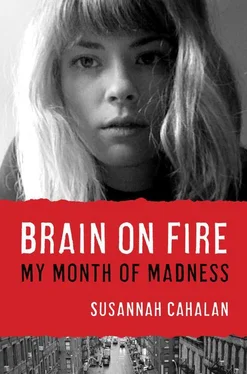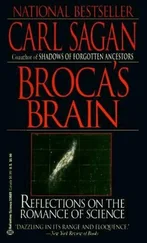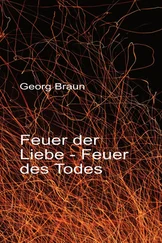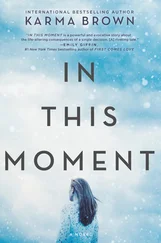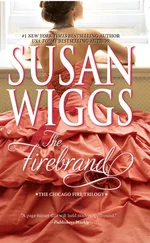“All the leaves are brown and the sky is gray. I’ve been for a walk on a winter’s day.” He recognized the song; it was one of his favorites, a song that brought him back to his childhood, when his mother used to listen to the Mamas and the Papas with him on the way to run errands. “Stopped into a church, I passed along the way. I got down on my knees and I began to pray.”
As if on cue, Stephen and I together belted out the chorus, “California dreamin’ on such a winter’s day!” For a moment, Stephen took his eyes off the road and glanced at me in astonishment and joy. Finally, here was the confirmation he had been waiting for all these weeks: I was still in there.
PART THREE
IN SEARCH OF LOST TIME
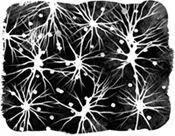
I had only the most rudimentary sense of existence, such as may lurk and flicker in the depths of an animal’s consciousness; I was more destitute of human qualities than the cave-dweller; but then the memory, not yet of the place in which I was, but of various other places where I had lived, and might now very possibly be, would come like a rope let down from heaven to draw me up out of the abyss of not-being, from which I could never have escaped by myself.
MARCEL PROUST,
Swann’s Way: In Search of Lost Time
Iinsert a silver DVD marked “Cahalan, Susannah” into my DVD player. The video begins. I see myself at the center of the screen, peering into the camera’s lens. The hospital gown slips off my left shoulder and my hair is stringy and dirty.
“Please,” I mouth.
On the screen, I stare straight ahead, lying on my back as rigid as a statue, my eyes the only feature betraying the manic fear inside. Then those eyes turn and concentrate on the camera, on me now.
Fear of this sort is not something we typically capture in photographs or videos of ourselves. But there I am, staring into the camera as if I’m looking death in the face. I have never seen myself so unhinged and unguarded before, and it frightens me. The raw panic makes me uncomfortable, but the thing that truly unsettles me is the realization that emotions I once felt so profoundly, so viscerally, have now completely vanished. That petrified person is as foreign to me as a stranger, and it’s impossible for me to imagine what it must have been like to be her. Without this electronic evidence, I could never have imagined myself capable of such madness and misery.
The video self hides her face under the covers, clutching the blanket so hard her knuckles turn white.
“Please,” I see myself plead on video again.
Maybe I can help her.
CHAPTER 36
STUFFED ANIMALS
“What did it feel like to be a different person?” people ask.
It’s a question that’s impossible to answer with conviction, because, of course, during that dark period, I didn’t have any real self-awareness that allowed me the luxury of contemplation, the ability to say, “This is who I am. And this is who I was.” Still, my memory does retain a few moments from those weeks right after the hospital. It’s the closest I can get to recapturing what it was like to feel so utterly divorced from myself.
A few days after my first hospital stay, Stephen drove me to his sister Rachael’s house in Chatham, New Jersey.
I remember the view from the car’s passenger seat window, driving past the familiar tree-lined suburban streets. I stared out the window as Stephen’s free hand held mine. I think he was as nervous as I was about my reintroduction to the real world.
“Good turkey,” I said, out of the blue as we turned into the driveway. It was a simple reference to the night in the hospital when Stephen had brought roasted turkey leftovers for me from his family’s Easter dinner. He couldn’t help but laugh, and I smiled too, though I’m not certain that I was even in on the joke.
Stephen parked the car next to a woodshed under a basketball hoop. I reached for the door handle, but my fine motor skills were still so weak I couldn’t open the car door, so Stephen ran to the passenger side and helped me out safely.
Stephen’s sisters, Rachael and Bridget, and their young children, Aiden, Grace, and Audrey, were waiting in the yard. They had heard snippets of what had happened, but most of it had been too painful for Stephen to recount, so they were largely unprepared. Bridget, for one, was shocked by my state. My hair was unkempt, and the angry red bald spot from the biopsy was exposed, complete with metal staples still suturing my skin together. Yellow crust covered my eyelids. I walked unsteadily, like a sleepwalker with my arms outstretched and stiff and my eyes open but unfocused. At the time, I knew that I was not quite myself, but I had no clue how jolting my altered appearance must have been to those who had known me before. Recalling moments like these, which occurred frequently during this tentative stage in my recovery, I wish I could, like a guardian angel, swoop down and help protect this sad, lost echo of myself.
Bridget told herself not to gawk and tried to hide her nervousness, concerned that I would sense it, but it only made her feel more flustered. Rachael and I had met at her daughter’s first birthday party back in October, when I had been outgoing and talkative and, unlike many of Stephen’s previous girlfriends, not at all intimidated by the closely knit nature of their family. The transformation was extreme, as though a hummingbird had turned into a sloth.
Because they were toddlers, Audrey and Grace didn’t notice that anything was wrong. But Aiden, an outgoing six-year-old, kept his distance from me, clearly unnerved by this strange new Susannah, so unlike the one who had played and joked with him only a few months earlier. (He later told his mom that I reminded him of the mentally handicapped man whom he often saw at their public library. Even in that half state, I could sense his apprehension, though I was bewildered by why he seemed so frightened.)
We all stood in the driveway as Stephen handed out the presents. As soon as I’d gotten out of the hospital, I felt compelled to give away the stuffed animals that had accumulated while I was sick. Grateful as I was for them, they served as plaguing reminders of my childlike state, so I wanted to purge myself of them by handing them off as gifts to the kids. Aiden said a quick thank-you and stood behind his mother as the two girls hugged my leg, each with their own high-pitched “Thank you!”
This initial memory, my first of many interactions with the outside world to come, lasted a mere five minutes. After Stephen handed out the presents, the conversation lulled, as everyone around me struggled internally to keep the superficial flow of words going while also concentrating on ignoring the obvious pink elephant in the room: my shocking state. Would I always be like this? Normally I would have attempted to cover up the silences with my own banter, but today I couldn’t. Instead I stood mute and unemotional, internally desperate to escape from this painful reunion.
Stephen was highly attuned to my growing unease, so he put his hand on the small of my back and guided me to the security of the car that would return us to the inner sanctum of our little protected world at home. Though the scene was brief and largely undramatic, and may seem insignificant in the overall scheme of things, it is branded into my mind as a key moment in the initial stage of recovery, viciously pointing out how painful and long the road to full recovery would be.
Читать дальше
